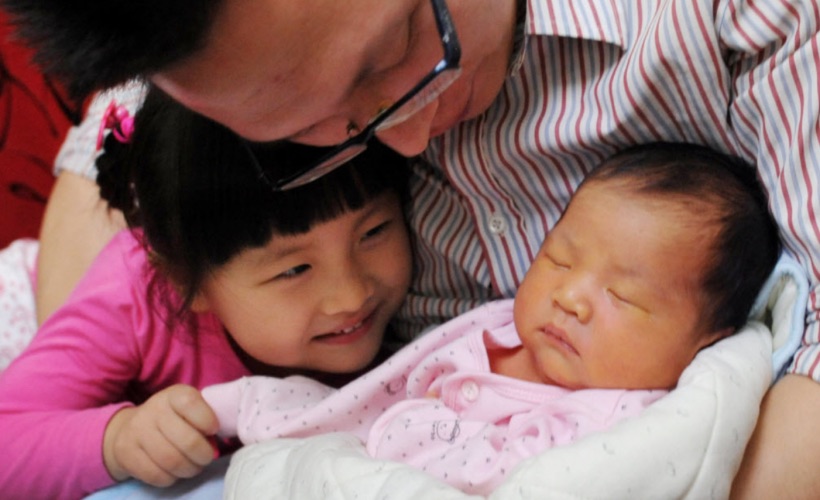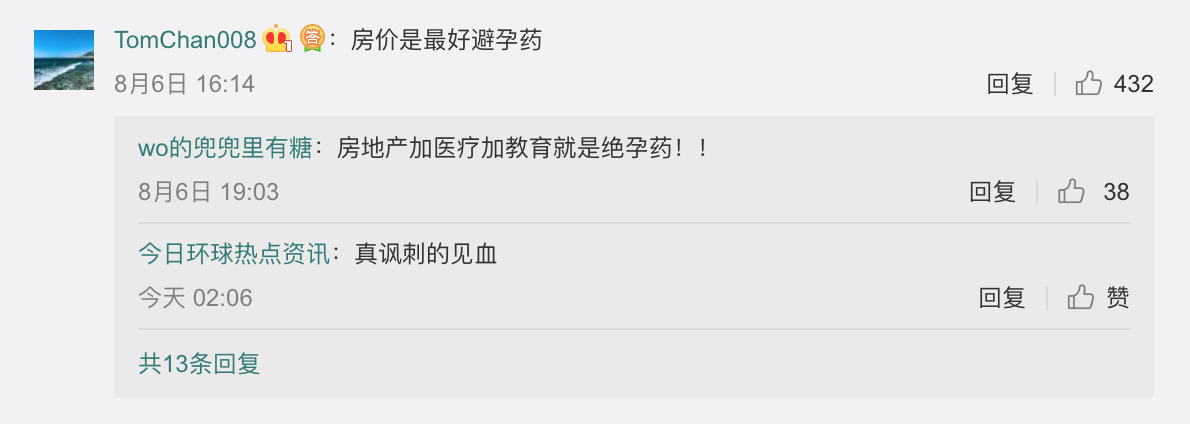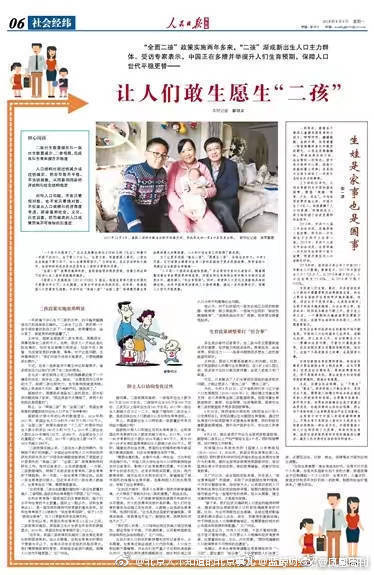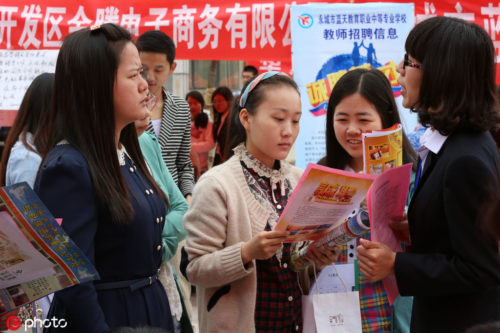The People’s Daily: ‘Giving birth is not only a family matter but also a national issue’
The People’s Daily: ‘Giving birth is not only a family matter but also a national issue’

A backlash is growing on Chinese social media against a recent commentary by the People’s Daily, which asserts that as China grapples with its falling birth rate, having children “is not only a family matter but also a national issue.”
Published by the People’s Daily’s foreign edition on August 6, the article (in Chinese) first acknowledges the public’s resistance to the idea of having more children despite a set of policies aimed at boosting China’s fertility rate. “The cost of raising a kid is particularly high for parents living in the cities. Therefore, young people in urban China don’t want to have kids,” the author Zhang Yiqi 张一琪 writes.
The heavy financial burdens of having a child, however, as Zhang argues, should be taken up by Chinese families, given that China is facing a looming demographic crisis as a result of the country’s decline in childbirth and growing elderly population. “To put it frankly, giving birth is not only a family matter but also a national issue,” the author argues, adding that low birth rates have already caused problems like rising labor costs and mounting pressure on social services around the country.
The author also makes a point that by elevating the problem of falling birth rates to a national issue, it means that concerned demographers and politicians should not solely rely on “people’s conscience” for population growth. Instead, the country should issue more family-friendly policies and assure their implementation.
“Having kids has a special meaning for Chinese people. Not wanting to have kids is just a lifestyle of passively giving in to society’s pressures.” the author concludes. “Thanks to its massive population, China has made some tremendous achievements. Now facing shrinking birth rates, the Chinese government must adopt more targeted measures to fulfill people’s pursuit of happiness.”
Accompanying the commentary is a feature story (in Chinese) with interviews of families and demographers. Wang Lin 王林, a father of two kids, told the reporter that he was hesitant to have a second child due to concerns about expensive child care and his desire for free time. “So before we decided to have a second child, my wife agreed to stop working after childbirth in order to devote all her time and energy to the kids,” Wang said.
It’s rare to see a People’s Daily article going viral on the Chinese internet, but this commentary is stirring up an avalanche of feedback, mostly criticism, among Chinese internet users. On Weibo, posts about this article by major media outlets attracted, in some cases, hundreds of thousands of comments (in Chinese). A hashtag bearing the headline of this article, #生娃是家事也是国事#, is trending on Weibo with over 15 million views.

The uproar after the commentary was not anomalous. In the last few years, ever since China ended its decades-long one-child policy in 2016, falling birth rates and policies to encourage childbirth have slowly become an object of intense discourse on Chinese social media. The whole conversation is largely centered around why the media always uses a denunciatory and paternalistic tone when covering the topic, blaming families unwilling to have more children for being selfish, and objectifying women as reproductive agents.
Below is a selection of Weibo comments in response to the People’s Daily commentary:

“Is it a family matter or a national issue to raise a kid?”

“It’s neither a family matter or a national issue. It’s a personal choice.”

“I don’t have much to ask. I’ll have a second child if I’m rewarded with a house.”

“It’s true that having children is a national issue, but it’s more of a family matter. A country can’t regulate what happens in people’s bedrooms, let alone in such an arbitrary way. When you don’t want children, you force people to get sterilized. When you want more, you urge us to give birth. What do you think I am?”

“The price of housing is the best contraceptive pill.”

“I used six wallets to buy a house. I don’t have any wallet left to raise a kid.”
(“Six wallets” is a popular phrase on the Chinese internet, after it was first used by influential Chinese economist Fan Gang 樊纲 in a television show in April. He said that a young person should consider purchasing a house if he is able to make a down payment with six wallets combined, which are from his parents, his partner, his partner’s parents, and himself.)
Also see:







